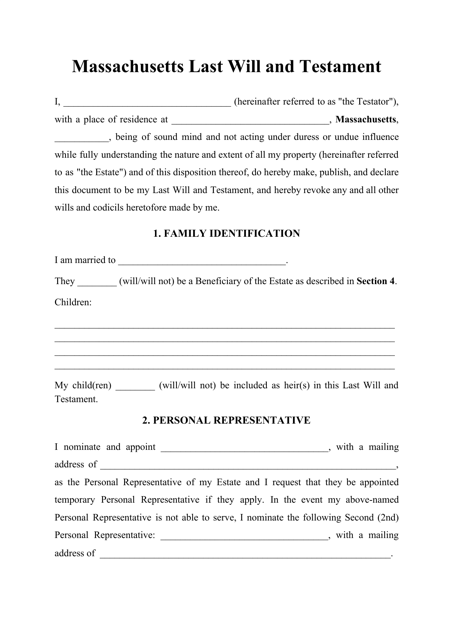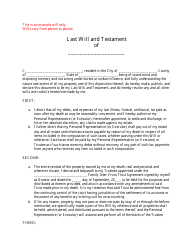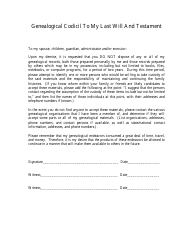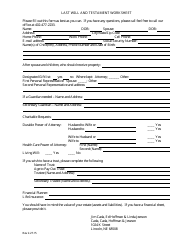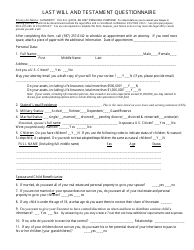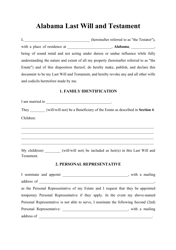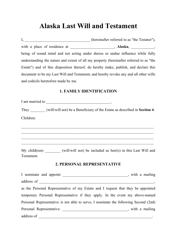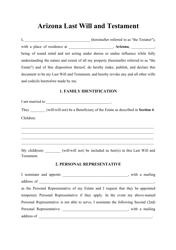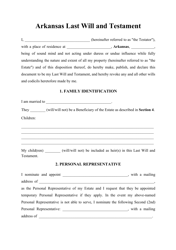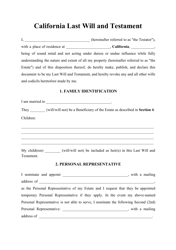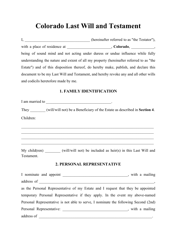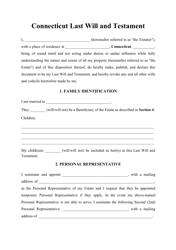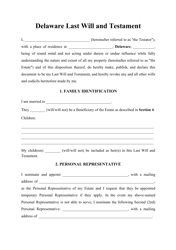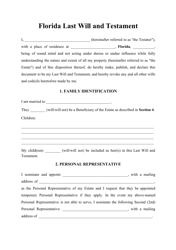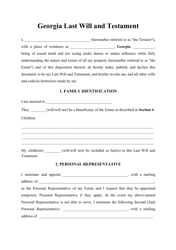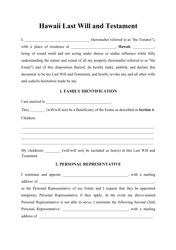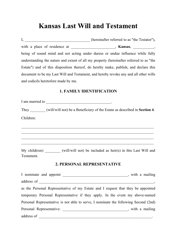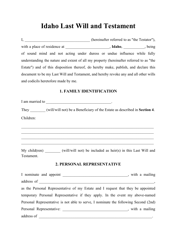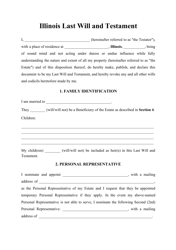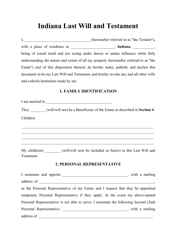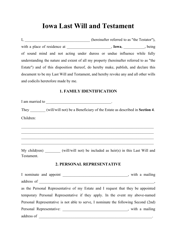Last Will and Testament Template - Massachusetts
A Massachusetts Last Will and Testament is a legal form that allows an individual - also known as a Testator - to identify who should receive their property, elect guardians for their minor children, and put an agent in charge of carrying out their wishes. There are two other parties named in a will: an Executor (the agent appointed by a Testator to carry out the terms of the will), and a Beneficiary (a person deriving advantage from the will).
Preparing the document also minimizes tensions among surviving family members - battling over possessions can weaken what may have been a strong family.
The Massachusetts Last Will is defined by Section 1-201(57) and regulated by Chapter 190B of the Massachusetts Uniform Probate Code . The document must be signed by two (2) witnesses. Download a ready-made template below or create your own with our online form-builder.
What Is a Last Will and Testament in Massachusetts?
A Last Will and Testament is a legally binding document created in order to enforce the Testator's wishes on how their estate should be distributed upon their death. The document addresses the distribution of personal property, real estate, and assets to individuals - like family or friends - and organizations - like charities or businesses.
The completed form must be thoroughly reviewed to make sure that all wishes are accurately reflected. The finished document must be signed and dated by the Testator in front of witnesses and certified by a notary. Testators must research the laws in their states or contact an attorney to revoke or change an existing will.
The final will may be distributed among the beneficiaries by a chosen representative or executor at the wishes of the Testator.
How to Write a Will and Testament in Massachusetts?
Testators are free to decide on the contents of their will. In Massachusetts a Last Will and Testament will cover the following topics:
- Executor. An executor is an elected lawyer or accountant tasked with carrying out the Testator's wishes concerning their estate. If the Testator decides to hire a professional Executor, they'll need to set aside funds for their payments.
- Assets. A Testator's assets may include anything from their real estate, pensions and bank accounts to vehicles, valuables, artwork and family heirlooms. Any of these assets can be left to a person or organization if specified in the will.
- Beneficiaries. The Testator's Last Will needs to contain information about the beneficiaries that will receive an inheritance after the Testator's death. Any individual or organization can be a beneficiary. Spouses, children, relatives, close friends or organizations such as your church or professional club can all receive the Testator's property and possessions if listed in their will.
- Debts. The appointed Executor will be in charge of settling the Testator's debt after their death. Any assets and property will go towards covering the cost of probate and funeral expenses, debts and mortgages before being split between the appointed beneficiaries.
